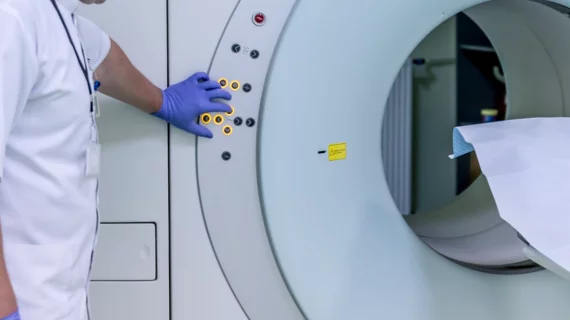Institutional change needed to expand MRI access to legacy cardiac implantable devices patients
A majority of cardiovascular implantable electronic devices (CIEDs) in the U.S. are still MR-nonconditional, but a pair of neurologists believe hospitals need to assess institutional policy to ensure patients have access to MRIs when needed.
This patient population has been excluded from MRI access due to concerns over device malfunction and local tissue injury from migration and heating wrote Collin J. Culbertson, MD and Carl A. Gold, MD with Stanford University in California. But an aging population has revealed 50 to 75 percent of patients with CIEDs will have a clinical indication for an MRI exam in their lifetime.
In the July 2 JAMA Neurology viewpoint, the authors pointed to two recent studies that demonstrated no significant clinical changes in device parameters following MRI exams, along with no major adverse effects when devices were properly programmed.
The Heart Rhythm Society (HRS) released 2017 guidelines which supported expanding MRI use in patients with legacy devices so long as certain benchmarks are met, but “most importantly, the recommendations call for thorough institutional policies that ensure appropriate supervision,” authors noted.
“Requirement for robust institutional safety protocols represents a major ongoing barrier to changing clinical practice,” they added. “While radiologists, cardiologists and device technicians must play key roles in protocol design, neurologists are in a unique position to champion this issue at the local level.”
Culbertson and Gold argued neurologists can work with radiologists to create disease-specific 1.5 Tesla imaging protocols. Within their practice, they can prioritize measuring the association of MRI with patient outcomes to prove its benefit.
“Neurologists have a responsibility to advocate for access for their patients with legacy devices,” Culbertson et al. wrote. “Without the input of neurologists, institutional policy change may be inefficient or include stipulations that unnecessarily restrict access for some patients, such as those requiring emergency MRI examinations.”

